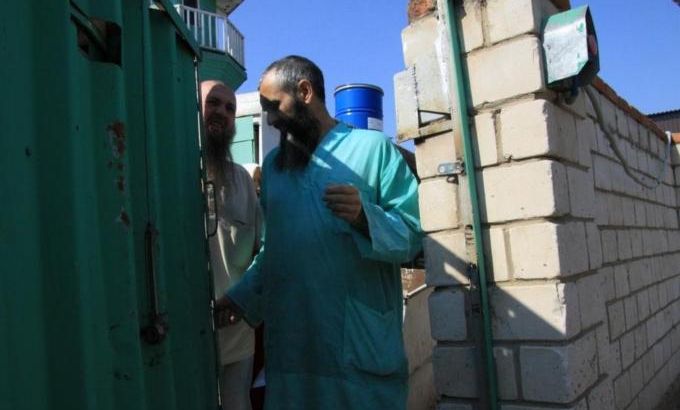Russia sect held children underground
Police find 27 children and 38 adults living in catacomb-like cells under home of a self- proclaimed Muslim prophet.

Four members of a reclusive Muslim sect in the Russian region of Tatarstan have been charged with cruelty against children for allegedly keeping them underground.
Police found 27 children and 38 adults living in catacomb-like cells, dug on eight levels under the home of the sect’s founder. It is not clear how long the children were kept underground.
The founder, 83-year-old Faizrakhman Satarov, who declared himself a Muslim prophet in contradiction with the principles of Islam, was also charged with negligence and arbitrariness on Wednesday, Irina Petrova, deputy prosecutor in the provincial capital of Kazan, told the Associated Press news agency.
No members of the sect, who call themselves “muammin” after the Arabic term that means “believers”, have been arrested, Petrova said.
The sect was uncovered in a suburb of the city of Kazan during an investigation into recent attacks on Muslim clerics in Tatarstan, a mainly Muslim region on the River Volga.
Islamic state
Satarov, a former top imam in the neighbouring province of Bashkortostan, declared his house outside Kazan an independent Islamic state.
He and his followers began to shun the outside world in the early part of this century.
The sect, dubbed Faizrakhmanists after their founder, does not recognise Russian state laws or the authority of mainstream Muslim leaders in Tatarstan.
Satarov ordered some 70 followers to live in cells they dug under the three-storey building topped by a small minaret with a tin crescent moon.
Only a few sect members were allowed to leave the premises to work as traders at a local market, Russian media reported.
The freed children have been placed in local hospitals for observation and will temporarily live in an orphanage, Tatyana Moroz, a paediatrician, said in televised remarks.
The cramped cells, without ventilation, heating or electricity, form eight levels under a decrepit three-storey brick house on a 700-square-metres plot of land.
Conflicting beliefs
The house was built illegally and will be demolished, Tatarstan police told local media.
Satarov had followers in several other cities in Tatarstan and other Volga River provinces, local media reported.
Muslim leaders in Tatarstan said Satarov’s views contradict their beliefs.
“Islam postulates that there are no other prophets after Mohammad,” Kazan-based theologian Rais Suleimanov told the Russian news website Gazeta.ru.
Police entered Satarov’s house last Friday as part of an ongoing investigation into the killing of Valiulla Yakupov, Tatarstan’s deputy chief Mufti, who was gunned down in mid-July as he left his house in Kazan.
Minutes later, Ildus Faizov, the chief mufti, was wounded in the legs after an explosive device ripped through his car in central Kazan.
Both clerics were known as critics of radical Islamist groups that advocate the establishment of a caliphate, an independent Islamic state under Sharia law that includes the Caucasus, Tatarstan and other parts of Russia.
More than half of Tatarstan’s four million people are Sunni Muslims. Tatars converted to Islam more than a thousand years ago, and the province became an important centre of Muslim learning and culture under Tatar-Mongol rulers who controlled Russia and parts of Eastern Europe.